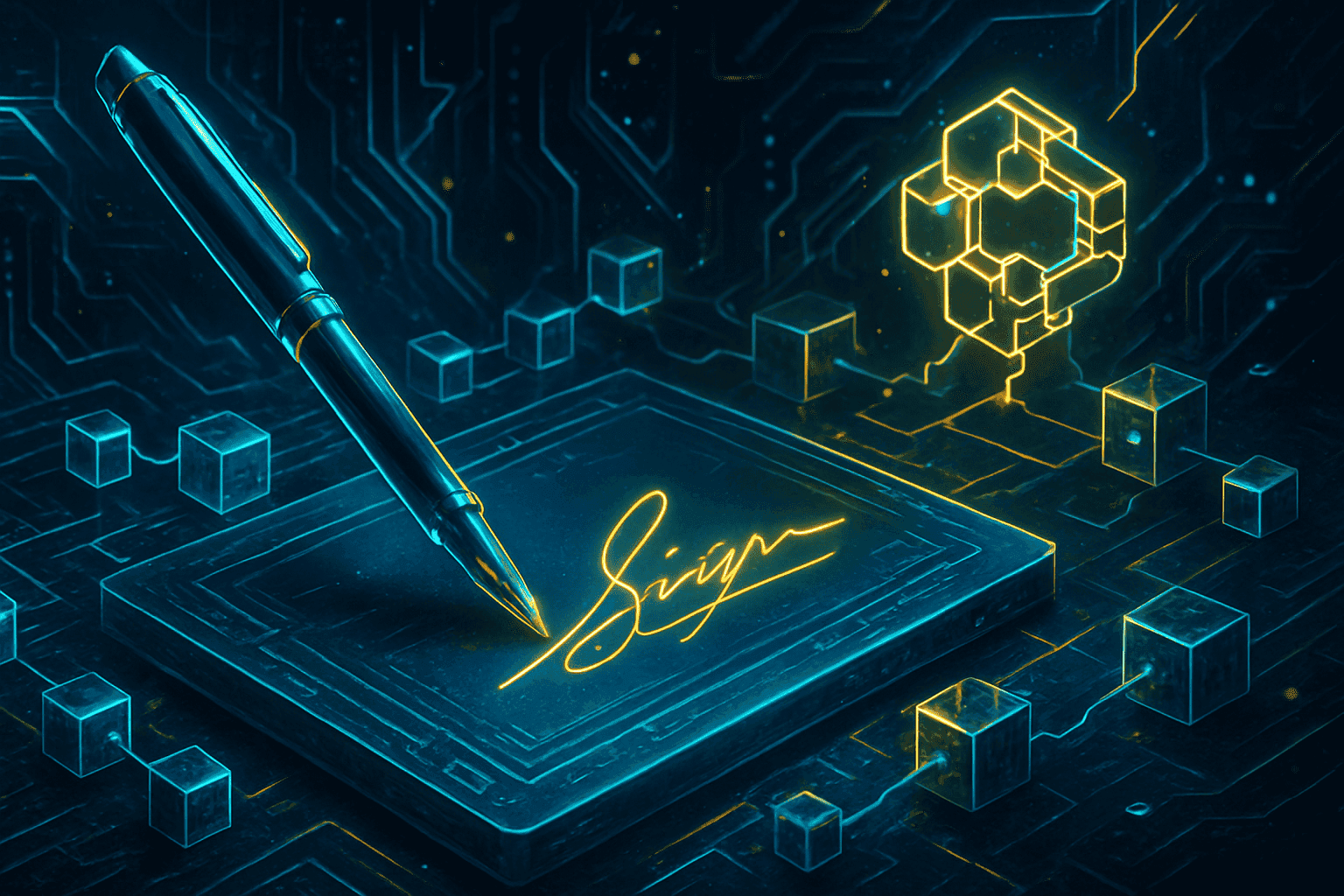Today we are still living fraud and data phishing but with the blockchain digital signature they will be able to put an end to all these threats.
What is a cryptographic digital signature?
The cryptographic digital signature is a mathematical system that verifies 100% the authenticity and traceability of a digital document or message, so you verify that it is not a fraud and we move away from all those threats. It has two keys: a private one that is for the owner and a public one that can be seen by anyone.
When you go to sign a digital document, your private key creates a unique fingerprint. With the public key everyone can verify that it was you who signed the document. It is like having a handwritten signature that is impossible to forge.
What is blockchain signature?
The mixture of electronic signature and blockchain technology, when we sign digital documents is a powerful advantage because we avoid manipulation and forgery of documents.
When you sign a document on the blockchain it is impossible to forge because it is registered in thousands of computers that are connected or want to enter from anywhere in the world to that blockchain, creating a permanent and unalterable record.
Once the document is signed in the blockchain, the information is stored in interconnected blocks that form a chain. We are talking about if someone tries to alter your signature they must also change it on thousands of computers connected to the blockchain, which is why decentralization is so important.
The Technology Behind the Magic
Within the blockchain there is a mathematical fingerprint called a “hash” this means that each block has its own unique fingerprint, and if you change just one comma in the document, the fingerprint also changes. This way we avoid manipulations.
Benefits of a Digital Certificate with Blockchain
Unmatched Security
Security is so powerful because everything is recorded in the blockchain, every document you sign will be saved and no one can change the content or the signature.
Instant Verification
Here the delay of waiting days to know if the document is authentic does not exist, in the blockchain you can verify it at the moment, everything is instantaneous.
Elimination of Intermediaries
The mixture of electronic signature and blockchain in the same technology is much safer and reliable when authenticating documents without the need for institutions or third parties to verify it. This saves time and administrative costs that are not necessary here.
Global Recognition
A digital certificate with blockchain is authentic anywhere in the world, no matter if you are in California or Albania, it is valid everywhere and can be verified.
Use Cases of a Digital Certificate with Blockchain
Construction Sector
In this industry technology has streamlined many processes in terms of signing documents. Professionals can sign digital plans, process licenses and manage BIM documents with full legal security.
Commercial Contracts
The contracting processes in companies is important to streamline them and avoid administrative costs, with the use of blockchain digital signatures give way to an aspect of accelerating contracting processes, especially in agreements with suppliers and customers.
Education and Certification
Educational institutions are beginning to take technology more into account when issuing certificates and diplomas that are impossible to forge. The student will be able to prove that his or her degree is authentic.
Digital Signatures Applied to Bitcoin
Bitcoin was the one that started digital signatures in blockchain as every transaction uses a certain signature to prove that you are the owner of the coins you send.
The moment you make a Bitcoin transaction, your wallet uses your private key to create a digital signature for that transaction. Then the miners verify it with your public key, without accessing your private key.
Digital Signature vs. Blockchain: Beyond Legal Validity
Traditional digital signatures and blockchain signatures may have the same legal validity but they do not have the same security and verifiability.
A traditional digital signature depends on a central certification authority. If that authority is compromised, all the signatures it has issued are compromised. With blockchain, there is no single point of failure. The information is distributed across thousands of nodes, making it virtually impossible to tamper with.
The blockchain digital signature is not just a technical improvement, it is a revolution in the way we conceive of digital authentication. It offers a level of security, transparency and efficiency that traditional signatures simply cannot match.
